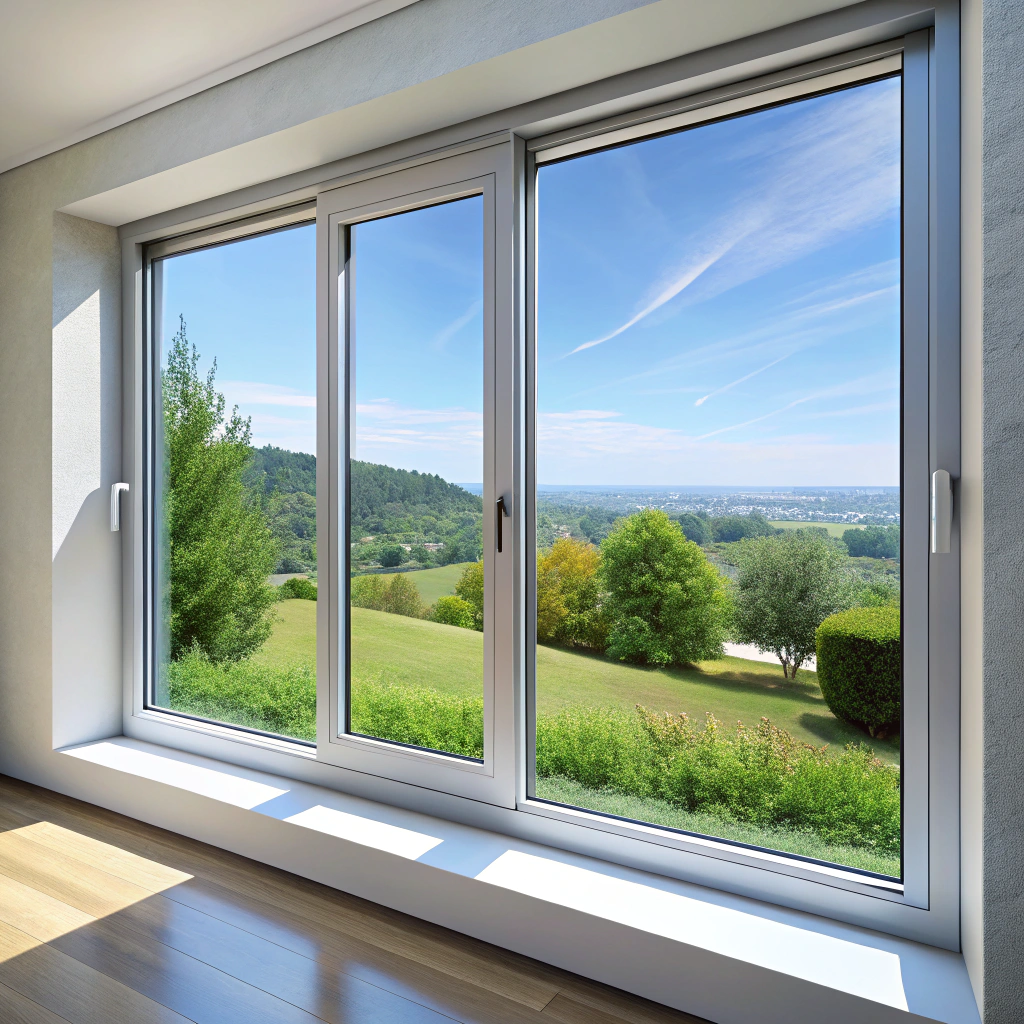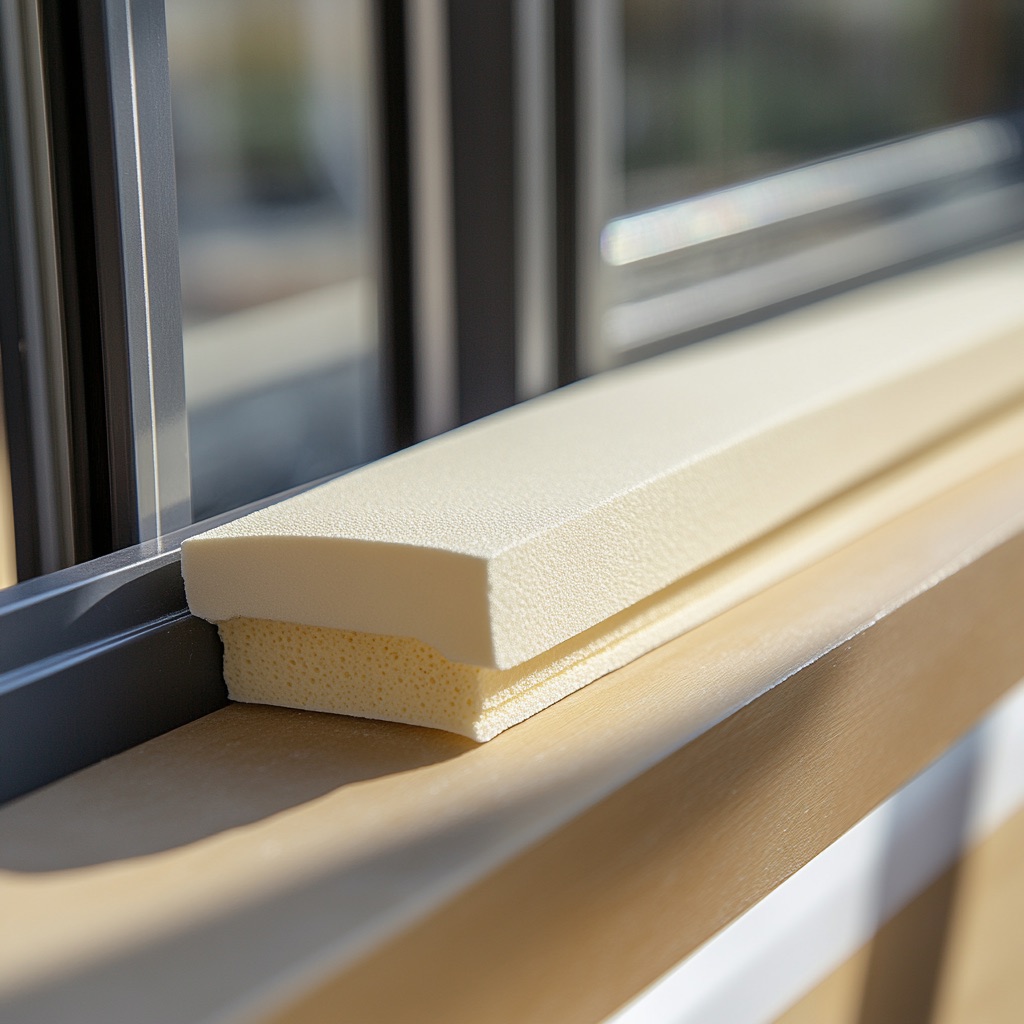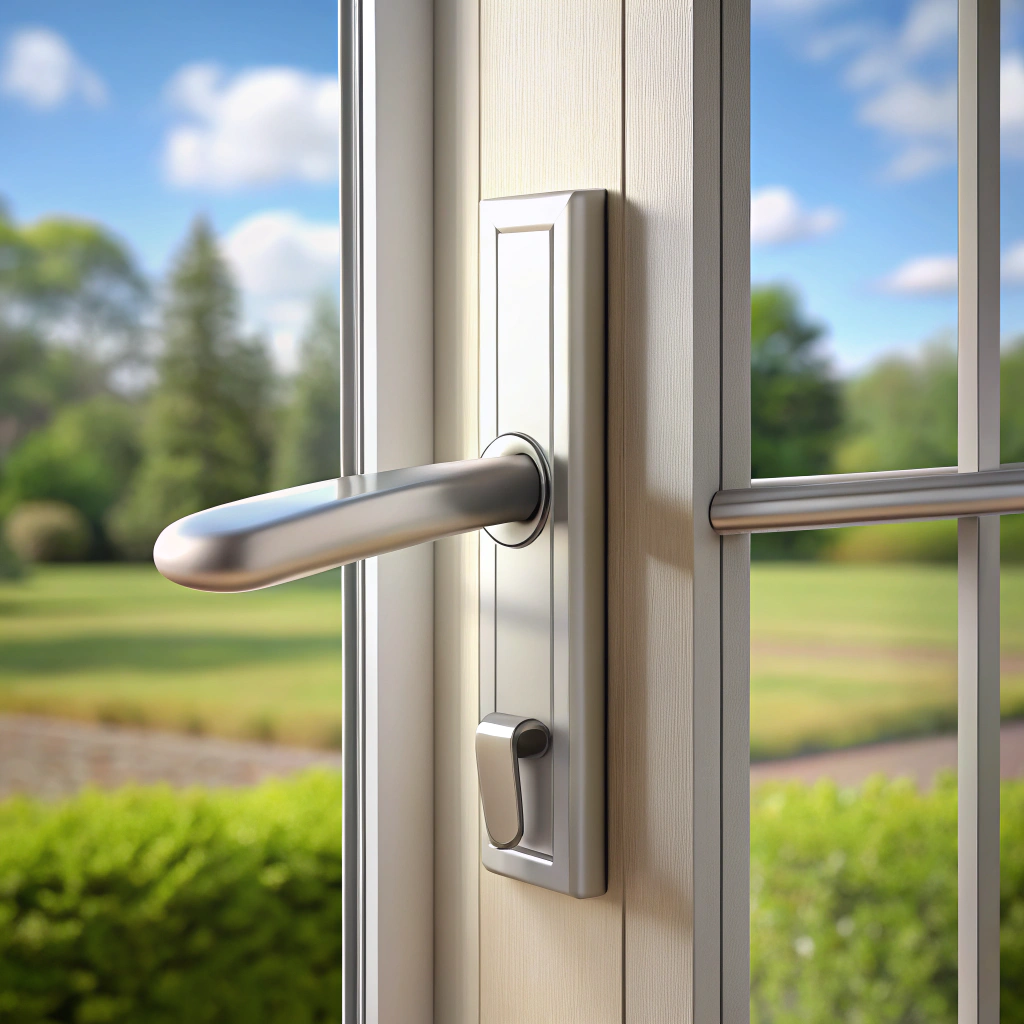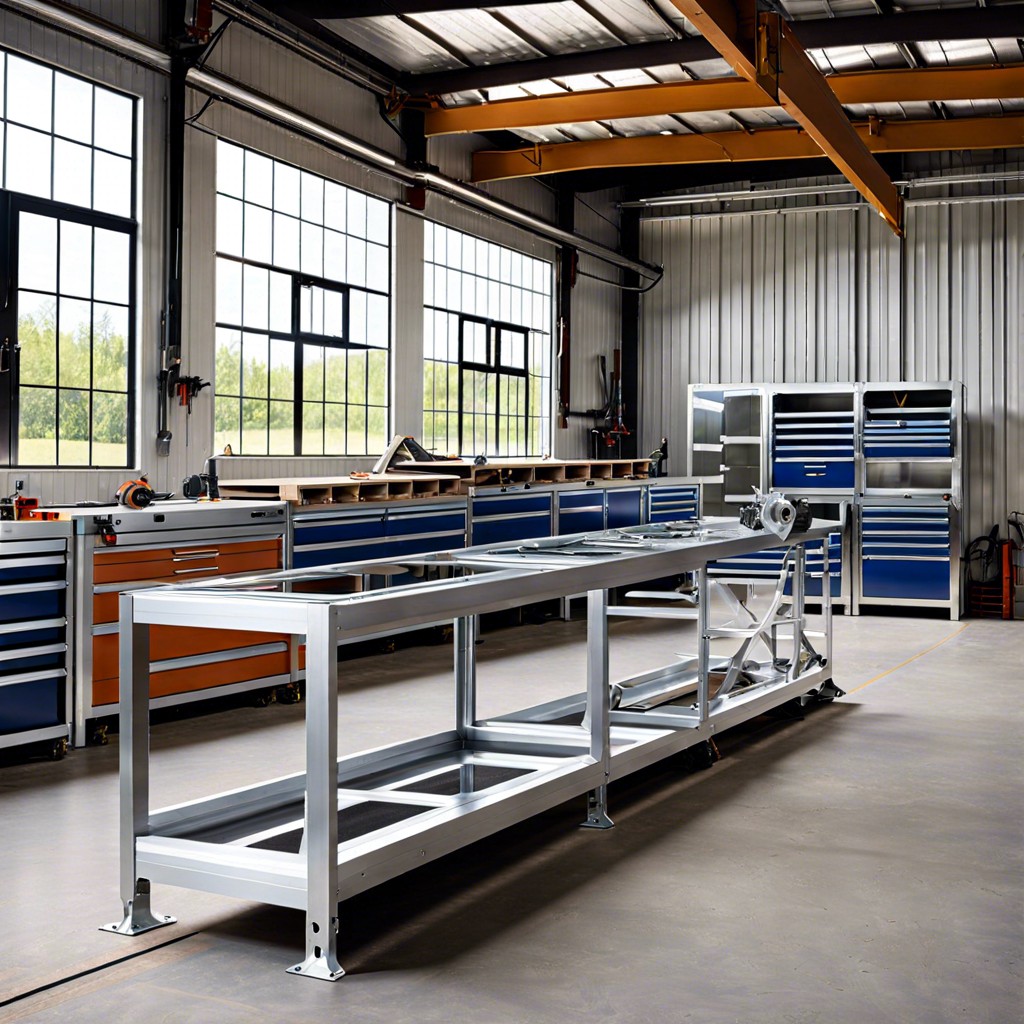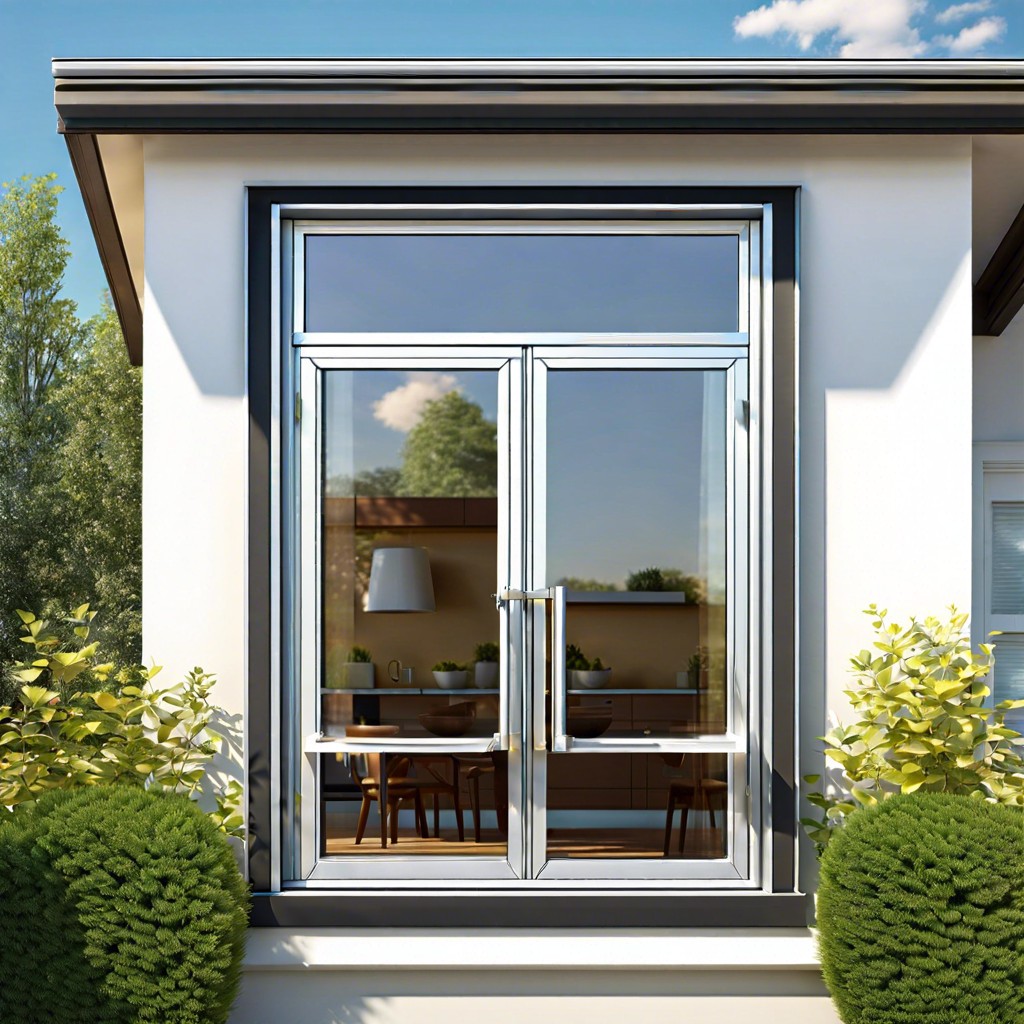Discover what to consider when choosing an all-aluminum window company and how their products can impact your home’s aesthetics and efficiency.
Key takeaways:
- Aluminum windows: durable, low maintenance, withstand harsh weather.
- Energy efficient: thermal breaks reduce heat transfer, lower energy bills.
- Customizable: wide array of styles, shapes, and colors available.
- Recyclable and eco-friendly: appealing for environmentally-conscious homeowners.
- Considerations when choosing a company: craftsmanship, certifications, energy efficiency, warranty, customer reviews.
Overview of All-Aluminum Windows

Aluminum windows boast durability and strength, standing up to harsh weather conditions with minimal maintenance required.
This material’s slim profiles allow for larger glass panes, admitting more natural light and providing expansive views.
Energy efficiency is enhanced through thermal breaks, reducing heat transfer and thereby potentially lowering energy bills.
The inherent malleability of aluminum facilitates customization, enabling a wide array of styles, shapes, and colors to fit architectural preferences.
Moreover, their recyclability contributes to their eco-friendliness, making them an appealing choice for environmentally-conscious homeowners and builders.
Key Features of All-Aluminum Windows
Durability is a standout trait of aluminum windows, resistant to the elements and less prone to wear and tear compared to wood or vinyl. Maintenance is minimal; occasional cleaning keeps them in pristine condition.
The strength-to-weight ratio of aluminum allows for slim frames and more glass, inviting ample natural light while maximizing views. Despite their lightweight, these windows boast superior security, often featuring multi-point locking systems.
Thermal performance can vary; advanced models come with thermal breaks to enhance insulation. Design flexibility is another benefit – aluminum can be tailored to various finishes and colors, suiting any architectural style.
Sound insulation is decent, with the option to upgrade with double or triple glazing. Recyclability of aluminum frames adds an eco-friendly edge, with the material being endlessly recyclable without loss of quality.
Considerations When Choosing an All-Aluminum Window Company
Prioritize quality craftsmanship; a reputable company should exhibit a portfolio of well-constructed windows. Investigate the range of their product offerings, ensuring they provide a variety of styles and functionalities that cater to different architectural needs.
Licensing and certifications are crucial; a certified company adheres to industry standards and regulations, which is a testament to their commitment to safety and quality.
Check for energy efficiency ratings; windows with high-performance ratings contribute to reducing energy bills and enhancing indoor comfort.
Consider warranty and after-sales service; look for companies that offer robust warranties and responsive customer service, signaling confidence in their product and dedication to customer satisfaction.
Research customer reviews and testimonials; firsthand experiences provide valuable insight into the company’s reliability and quality of service.
Evaluate the company’s commitment to innovation; businesses at the forefront will typically offer the latest features in window technology, such as enhanced insulation, UV protection, and noise reduction.
Environmental Impact and Sustainability
Aluminum, abundant in the Earth’s crust, offers a recyclable and sustainable material choice for window construction. The energy-intensive initial production is offset by aluminum’s longevity and recyclability.
A high percentage of aluminum windows can be recycled, conserving resources and reducing waste. Energy-efficient designs reduce carbon footprints by minimizing heat loss and enhancing thermal performance.
Some manufacturers commit to green practices, including the use of recycled aluminum and eco-friendly manufacturing processes, contributing to a sustainable building ecosystem. Consumers are encouraged to consider these green credentials when selecting a window provider.
Assessing Cost-Effectiveness
While all-aluminum windows may present a higher upfront cost compared to other materials, their long-term value should not be overlooked.
The durability of aluminum means less frequent replacements and repairs, which translates into savings over time.
Additionally, aluminum’s excellent thermal performance, especially when combined with energy-efficient glazing, can lead to significant reductions in heating and cooling costs.
To assess the cost-effectiveness of an all-aluminum window company, examine the warranty offered, the estimated lifespan of their products, and potential energy efficiency rebates.
Compare these factors against the initial investment to get a clearer picture of the true costs over the life of the windows.
Recap
